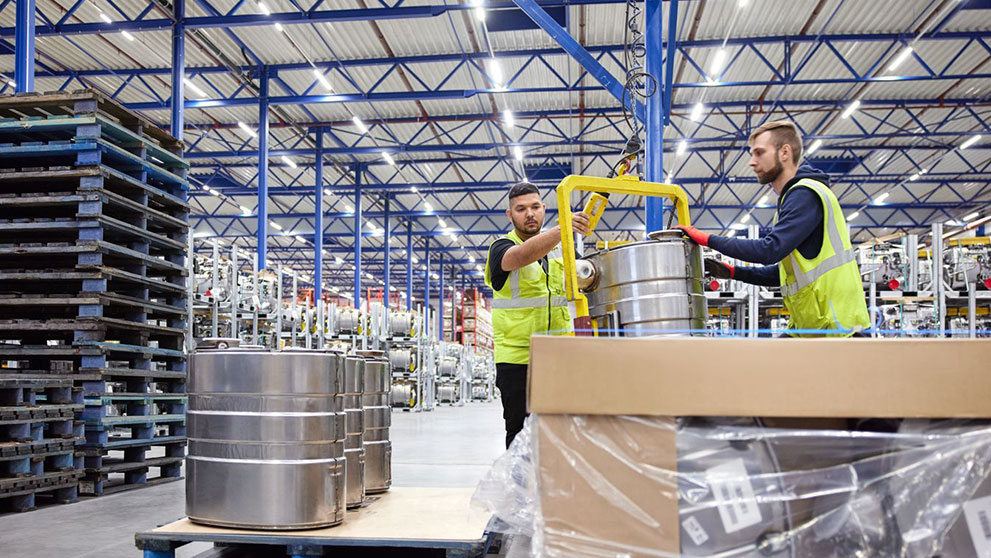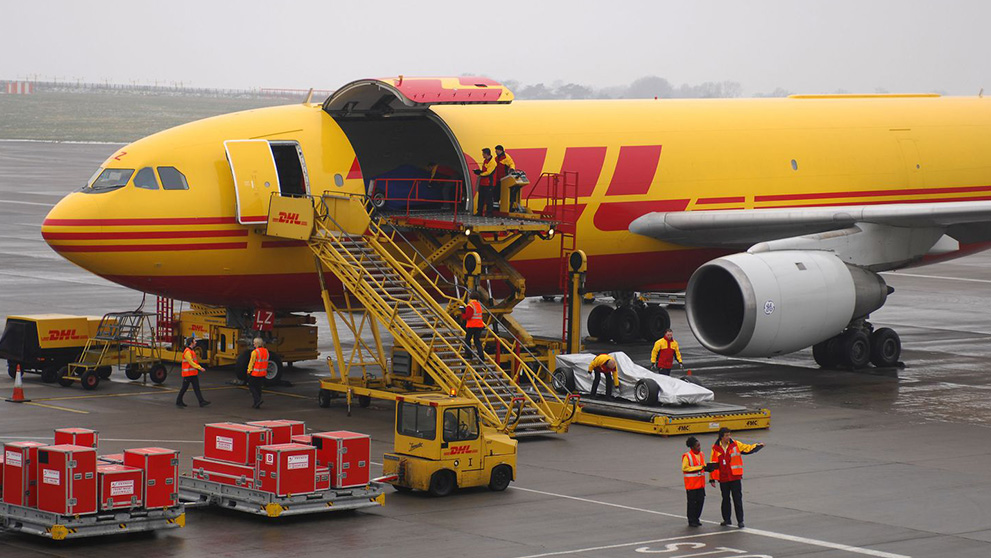Bangladesh's business environment presents a wealth of opportunities for entrepreneurs, buoyed by a robust recovery and steady economic growth. Despite the challenges of the COVID-19 pandemic, the country's gross domestic product (GDP) growth rebounded to 7.1% in FY22, a new World Bank report, The Bangladesh Development Update April 2023, Trade Reform: An Urgent Agenda, revealed. This was fuelled by effective macroeconomic policies, robust external and domestic demand, and governmental support.
Industries such as Ready-Made Garments (RMG) and textiles, agriculture, and leather goods have been instrumental in driving the nation's export growth. Yet, for businesses to operate legally and participate in this burgeoning export market, they must first comply with numerous government regulations, beginning with acquiring the necessary permits.
Below, we outline the important government permits you need to run your business in Bangladesh and export overseas.
10 government permits you need to operate your business in Bangladesh
1. Trade licence
Obtaining a trade licence from the local city corporation is the first legal necessity for businesses in Bangladesh. The licence, valid for a year, has its application and documentation processes varying per city corporation. Trade licences exist across three categories: general, commercial and manufacturing. The general trade licence applies to most types of businesses except for commercial or manufacturing entities. Commercial businesses such as retail stores or e-commerce businesses will require a commercial trade licence. Businesses with factories will require a manufacturing trade licence. To apply for a new trade licence, you must first complete the prescribed Application Form from the relevant zonal city corporation – Dhaka North City Corporation or Dhaka South City Corporation. You may download the form online from the Bangladesh Trade Portal website. As part of your application, you will also need to provide necessary documents such as identification, tax and bank documents for verification, and pay the required fees.
2. Certificate of Taxpayer Identification Number (TIN)
The National Board of Revenue (NBR) provides a unique TIN for each taxpayer, which businesses must possess. The application online via the e-TIN registration portal, requiring the submission of specific information and documents similar to your trade licence application. These include a utility bill, a copy of your business registration certificate and of your passport or national identification card.
3. Certificate of Registration for Value Added Tax (VAT)
If you want to set up a business in Bangladesh, you must obtain a Business Identification Number (BIN). This is granted only in the form of a VAT registration certificate.
VAT is a consumption tax that is levied on most goods and services in Bangladesh. Generally, VAT is levied at 15% on all imports and supplies. There is no VAT required for exports. However, you will be required to pay 3% VAT to the government regardless if your annual turnover is between TK30 lakhs and TK80 lakhs. If your annual turnover is more than TK80 lakhs, the standard 15% VAT will apply.
Online VAT registration requires a copy of the trade licence, TIN certificate, and balance sheet. The process can be done online via the NBR website, and it is free.
4. Environmental Clearance Certificate (ECC)
Businesses with operations that can impact the environment must be certified for environmental clearance from the Department of Environment (DOE). The application process and necessary documents differ based on the category the business falls under. View an overview of the categories and requirements below:
Business Category
Business Category | Description | Example |
Green | Businesses causing a negligible impact on the environment. | Photography, book-binding, etc. |
Orange-A | Businesses likely to cause an impact on the environment, but it is not severe, and can be mitigated without any residual effects. | Dairy farms, printing presses, restaurants, etc. |
Orange-B | Businesses likely to cause a mild or severe impact on the environment but can reduce impact when the correct action is implemented. | Glass factories, commercial buildings, etc. |
Red | Businesses likely to cause a significant impact on the environment, and harmful effects must be well monitored and handled. | Power plants, tanneries, etc. |
5. Import Registration Certificate (IRC)
To import goods into Bangladesh, businesses need the IRC from the Office of Chief Controller of Imports & Exports (CCI&E) of the Ministry of Commerce. The application process requires you to submit certificates from multiple authorities:
Document
Document | Issuing Authority |
Trade licence | Local City Corporation |
TIN certificate | NBR |
VAT certificate for BIN | NBR |
ECC | DOE |
Membership certificate from a recognised Chamber/Trade Association | Chamber of Commerce and Industry |
Financial solvency certificate from a bank | Bank |
Treasury challan | Bank |
Citizenship certificate | Ward Commissioner |
Memorandum and Articles of Association and Certificate of Incorporation (in case of Limited Company) | Registrar of Joint Stock Companies |
Partnership deed | Registrar of Joint Stock Companies |
The IRC is valid for five years.
6. Export Registration Certificate (ERC)
Businesses exporting goods require the ERC from the Export Promotion Bureau (EPB), among other export documents you’ll need when shipping goods from Bangladesh. The application process and needed documents vary based on the type of goods being exported, but are largely similar to that of the IRC. These include the trade licence, chamber/trade association membership, TIN, and bank and business incorporation certificates, among others. The ERC is also valid for five years.
7. Licence for the Certification Mark (CM)
The Bangladesh Standard and Testing Institution (BSTI) issues the CM licence for businesses wishing to use a certification mark on their products. Application procedures and document requirements depend on the certification mark type. Among other documents, your trade licence will be mandatory. The CM mark is valid for three years and can be extended as long as all conditions specified by the BSTI are met.
8. Certificate of Registration of Factories and Establishment
Issued by the Department of Inspection for Factories and Establishments (DIFE), this certificate is necessary for all factories and establishments, with varying application requirements based on their size. The certificate can be applied online via the Labour Inspection Management Application website, a portal by the DIFE.
9. Bonded Warehouse Licence
For storing imported goods in a duty-free bonded warehouse, businesses require this licence from the Customs Bond Commissionerate (CBC). Applicants must fill out the designated bond licence application form and submit the required documents and the application fee to the pertinent Bond Commissionerate. Alternatively, these can be submitted to any Customs, Excise and VAT Commissionerate that has been officially authorised by the NBR to issue such licences.
10. Fire licence
In Bangladesh, businesses with factory establishments must secure a fire licence, validating their adherence to fire safety standards and their commitment to protecting both employees and customers. This mandatory annual licence, issued by the Fire Service and Civil Defense (FSCD), also helps monitor business compliance with fire safety norms. To obtain it, businesses must submit a variety of documents to the FSCD. These include a trade licence, TIN certificate, VAT registration certificate, ECC, building layout plan, firefighting equipment inventory, fire drill schedule, and a fire safety training certificate for staff.
Industry-specific approvals required for businesses in Bangladesh
On top of the aforementioned permits, you will also be required to obtain approvals from designated authorities for the export of restricted goods. Below is a non-exhaustive list of what these can entail:
Goods | Permit/Licence | Designated Authority |
Food | Health safety certificate | Bangladesh Food Safety Authority (BFSA) |
Tea | Export permit (consignment wise) | Bangladesh Tea Board |
Frozen fish | Quality control certificate | Department of Fisheries |
Urea fertiliser | Approval certificate | Ministry of Industries |
Agricultural | Phytosanitary certificate | Plant Protection Wing of the Department of Agriculture Extension |
Pharmaceutical | Drug registration certificate Export licence for medical drugs | Directorate General of Drug Administration (DGDA) |
Chemical | Hazardous substances licence | Department of Environment (DOE) |
Entertainment in the form of audio and video cassettes, CDs, DVDs, etc. | No objection certificate | Ministry of Information |
Choose trusted vendors to support business growth
Establishing a business in Bangladesh involves more than just acquiring the necessary permits. A vital component of growth is choosing trusted vendors who can streamline operations. When it comes to express international shipping, DHL Express Bangladesh provides both standard and expedited services, ensuring your products reach global markets seamlessly and efficiently. Trust DHL Express to be your partner in overseas shipping, supporting you as your business scales new heights.
Get started with a DHL Express business account today.














